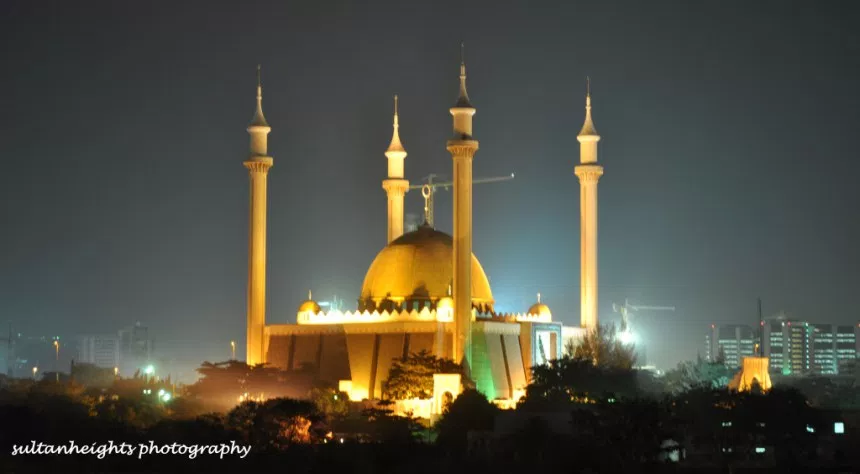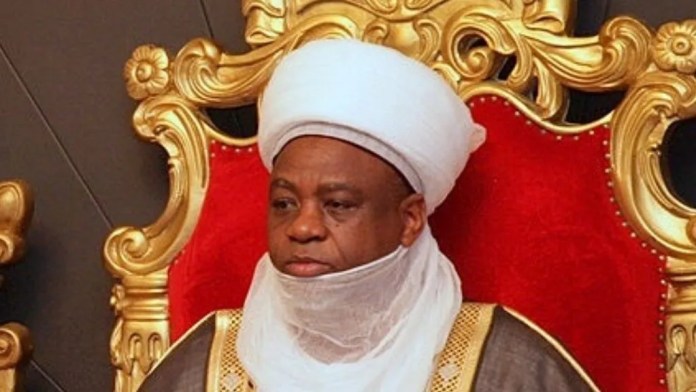In the Name of Allah, the Most Beneficent, the Most Merciful
All praise is due to Allah, the One who cures and gives health, the One who benefits and harms, the One, the Majestic, the One who is unique in His Oneness. He is the One who creates and to Him all things return. He created everything with His power, and arranged all affairs by His will. I testify that none has the right to be worshipped except Allah, and I testify that Muhammad is His servant and messenger. He conveyed the message, fulfilled his obligation, and strove for the sake of his Lord, so may the peace and blessings of Allah be upon him, his family, his companions and all those who follow him sincerely until the Last Day.
Dear brothers and sisters! No doubt, Ramadan is the month of forgiveness and repentance. The word ‘Ramadan’ is derived from arabic word ‘Ramad’ which refers to the intense burning heat of the sun. Thus, ‘Ramadan’ is the month in which the sins of the believers are burned by their righteous deeds. The Messenger of Allah (Peace be upon him) said:
“The five daily prayers, Jumuʿah to Jumuʿah, and Ramadan to Ramadan expiate for (the sins perpetrated) in between them, so long as one stays away from the major sins.” [Muslim]
The Messenger of Allah (Peace be upon him) said:
“…May his nose be soiled in dust (i.e. may he be humiliated) — the man upon whom Ramadan enters, and then ends before he is forgiven!” [Tirmidhi]
This Duʿa – made by the most merciful of men, Prophet Muhammad (Peace be upon him) – may appear harsh, but we will understand it when we reflect on how many opportunities Allah provides us in this blessed month to be forgiven. He (Peace be upon him) told us that fasting Ramadan with firm belief and hoping for reward leads to one’s previous sins being forgiven. Likewise, standing in prayer at night throughout the month leads to one’s previous sins being forgiven. Similarly, standing in prayer at night in Lailatul Qadr also leads to one’s previous sins being forgiven [Bukhari]. If we are not going to be forgiven this month, then when are we going to be forgiven?
Respected brothers and sisters! Wallahi all of us are sinful. We commit sins and don’t even realise how we are suffering from their consequences. Our sins are not just between us and Allah. They directly impact our families, our communities and, ultimately, the entire Ummah. Sins take us far away from Allah and incur His anger and punishment. Sins remove barakah (blessings) and weaken the heart and the body. Sins deprive us from doing good deeds, prevent our Duʿas from being accepted, result in a horrible death and lead to suffering in the hereafter. Imam Ibn Al-Jawzi (rahimahullah) said:
“Sins are like a chain around the neck of the sinner. One can only be released from it through istighfar (seeking forgiveness) and Tawbah (repentance).”
The Messenger of Allah (Peace be upon him) said:
“Indeed, when the servant commits a sin, a black dot appears on his heart. When he desists, seeks forgiveness and repents, his heart is polished clean. But if he commits a sin again, it increases until it covers his heart. And that is the ‘ran’ (rust) which Allah mentioned: ‘No indeed! Rather what they have been doing has rusted their hearts (Qur’an, 83:14).’” [Tirmidhi]
Sins can seal the heart to the extent that one’s heart becomes numb and no longer accepts any reminder or any form of good. This can lead to one becoming desensitised and not considering a sin as a sin. Sins are the biggest obstacles in our journey to Allah. Sins ruin the heart and make it diseased. Just like a sick person cannot enjoy food, the diseased heart cannot enjoy the sweetness of worship and Iman (faith). The reason why our hearts may feel hollow, or our worship may feel ‘empty’ is due to our sins. Thus, istighfar has to be an essential part of our lives, and more so in Ramadan, in which it is far easier to be forgiven.
Imam Ibn Taimiyyah said:
“Whoever does not feel contentment of the heart and cannot experience the sweetness of faith (Iman) and the light of guidance, then he should increase in repenting and seeking forgiveness.”
Just as we must make istighfar for our sins, we must also ask Allah to forgive the deficiencies in our worship and good deeds. We can never fulfil the rights of Allah and worship Him as He deserves to be worshipped.
We should never let a single night pass by in Ramadan without crying to Allah and begging Him to forgive us, especially in sujud in the last third of the night.
Dear servants of Allah! Indeed Ramadan is the month of Tawbah (repentance). A month of truly turning with one’s heart to Allah, and humbly apologising to Him. We should dedicate time in Ramadan to reflect on all the sins we have committed throughout our lives. We should feel very bad at having sinned, and we should reflect on our negligence in worshipping Allah. We should think over how Kind and Generous Allah is to us, and how we use these very same blessings to disobey Him. We should think about how Allah al-Sittir (The Concealer of sins) does not expose us despite the multitude of our sins. This should fill our hearts with a deep sense of shame and remorse.
Allah the Almighty says:
“O believers! Turn to Allah in sincere repentance, so your Lord may erase your sins and admit you into Gardens, under which rivers flow…” [Qur’an, 66:8]
Respected servants of Allah! For our Tawbah (repentance) to be sincere, we have to:
1. Stop committing the sin;
2. Feel a deep sense of regret and remorse over the sin;
3. Firmly resolve to never return to that sin;
4. Make amends if we have wronged another person (e.g. ask their forgiveness or supplicate for them).
Let us make sincere Tawbah (repentance) to Allah in this blessed month. Our sincere Tawbah must also include a firm resolve to not return to the sin, especially when Ramadan is over. For example, if we give up watching prohibited (haram) things in Ramadan, but at the back of our minds, we have an intention to return to it once Ramadan is over, then this is not a sincere Tawbah.
The scholars have mentioned that a sincere Tawbah can make a sin the means for a person to enter Paradise (Jannah). A person may commit a sin, but subsequently makes repentance (Tawbah). His Tawbah is so sincere that he constantly thinks about the sin. This causes him to fear it, regret it, weep over it and feel ashamed in front of his Lord due to it. He stands before Allah, broken-hearted with his head lowered in humility. He constantly begs and cries to Him in Duʿa, and he tries to atone for the sin by doing other good deeds — to the extent that Shaitan says:
“I wish I had not made him fall into that sin.”
Thus, this one sin becomes the cause for him entering Paradise.
Repentance (Tawbah) is a gift from Allah. We can only make Tawbah (repentance) if Allah allows us to do so (tawfiq). Allah turns towards us first, after which we turn to Him in repentance; and then He accepts our repentance.
Allah the Most High says:
“…Then He turned towards them, so that they may repent. Surely, Allah is the Acceptor of repentance, the Very Merciful.” [Qur’an, 9:118]
Sometimes Shaitan may delude us into thinking that we still have time, and that we will make repentance (Tawbah) in the latter part of our lives. However, there is no guarantee for this life. We should make repentance (Tawbah) today, so that we do not regret it when it is too late. It has been said that if the deceased in the grave were able to communicate with us, they would tell us that their greatest desire would be to be able to return to the world, even for a fraction of a moment, and make sincere repentance (Tawbah) to Allah the Almighty.
Imam Ibn Al-Qayyim said:
“The best day in a servant’s life is undoubtedly the day in which he turns to Allah in repentance, and Allah accepts his repentance.”
There is no one who forgives like Allah. No matter what we may have done, Allah is waiting for us to turn to Him with sincerity and humility, and beg Him to forgive us. He is al-Ghafur (The All-Forgiving) and al-Ghaffar (The Most Forgiving). He the Almighty says:
“Say, (O Prophet, that Allah says,): O My servants who have transgressed against their souls! Do not lose hope in Allah’s mercy, for Allah certainly forgives all sins. He is indeed the All-Forgiving, Most Merciful.” [Qur’an, 39:53]
Allah the Most High says in a Hadith Qudsi:
“Son of Adam, as long as you call upon Me and hope in Me, I will forgive you despite what you do, and I do not care. Son of Adam, even if your sins were to reach to the clouds of the sky, then you seek forgiveness from Me, I will forgive you. Son of Adam, even if you were to come to Me with nearly an earth full of sins, and then you meet Me, not having associated anything with Me, then I will surely bring you as much as the earth in forgiveness.” [Tirmidhi]
Allah the Almighty is Free of all need, and yet we find His messengers telling those who reject Allah:
“Can there be any doubt about Allah, the Originator of the heavens and the earth?! He is inviting you in order to forgive you your sins…” [Qur’an, 14:10]
Not only does Allah forgive, but he loves those who constantly repent and seek His forgiveness. From His immense kindness, He instructs His angels – including the Bearers of the Throne – to supplicate for our forgiveness! The Prophet Muhammad (Peace be upon him) explained that Allah’s delight at His servant’s repentance is greater than the delight of a person who was travelling in a desert, lost all his belongings, and then unexpectedly found them.
As humans, we struggle to forgive each other, let alone reciprocate evil with good. Allah, on the other hand, does not only conceal and forgive, but He also “changes their evil deeds into good ones.” [Qur’an, 25:70]
Moreover, He showers us with worldly blessings as a result of us seeking forgiveness, including wealth, children and strength (see Qur’an, 71:12 and Qur’an, 11:52). Allahu Akbar!
Respected servants of Allah! Repentance (Tawbah) is an essential ingredient in every stage of a servant’s journey to his Lord, and it is something we must renew all the time. It is inevitable that we are going to sin; but each time we sin, we should rush to make repentance (Tawbah), so that the sins do not corrode our hearts.
Imam Ibn Al-Qayyim (rahimahullah) writes:
“The state of repentance (Tawbah) is at the beginning, the middle and the end of the servant’s journey to his Creator. The servant who seeks the pleasure of Allah never abandons repentance (Tawbah). He remains in the state of repentance (Tawbah) until his death.”
This Ramadan, our goal should be to reach the level of inabah. Inabah is the stage after repentance (Tawbah) and it consists of repeatedly turning to Allah with love and humility; and to turn away from other than Him. Prophet Ibrahim (AS) was described as ‘Munib’ (Qur’an, 11:75), a person of inabah. Allah the Almighty says:
“But Paradise will be brought close to the righteous and will no longer be distant. ‘This is what you were promised — for everyone who turned often to Allah in sincere repentance and preserved (His commands); who were in awe of the All-Merciful without seeing Him; and have come with a heart which is munib (turned in devotion to Him).” [Qur’an, 50:31-35]
May Allah Al-Tawwab (The Acceptor of repentance) always turn to us so that we turn to Him. May He always accept our repentance (Tawbah) and grant us the gift of inabah, ameen.
Respected brothers and sisters! When Prophet Adam (AS) mistakenly ate from the tree in Paradise (Jannah), he immediately turned to Allah the Almighty in repentance. When Prophet Yunus (AS) was swallowed by the whale, he too turned to Allah in repentance. When Prophet Musa (AS) accidently killed a man, guilt caused him to turn back to Allah in penitence. In fact, all the Prophets of Allah and the pious predecessors that came after them would remind the people of the ample mercy and generosity of Allah the Almighty. They would constantly be in a state of repentance, sincerely and humbly, for even the smallest of sins. They understood that their Lord was a Merciful one, who accepted their repentance over and over and over again.
Repentance (Tawbah) is a beloved act to Allah as it shows the humility and sincerity of those worshipping Him and their acknowledgement of their own mistakes and Allah’s infinite mercy. As Muslims, we should never feel that our sins are too big, or that we will never be forgiven or shown mercy. This is contrary to our Islamic belief, as Allah has many names such as Al-Ghaffar – the perpetual forgiver, and Al-Afuww – the Pardoner, both of which describe His forgiving nature.
Allah the Almighty speaks to us eloquently in the Qur’an when He says:
“Say: “O My servants who have transgressed against themselves (by committing evil deeds and sins)! Despair not of the Mercy of Allah, verily Allah the Almighty forgives all sins. Truly, He is oft-forgiving, Most Merciful.” [Qur’an, 39: 53]
Allah the Almighty created His servants and knows them well, knows their every thought and every action, knows that they will sin and loves when they turn back to Him. And so He provided them with the act of repentance (Tawbah), something so beautiful, which if they practice, will not only wipe away their sins, but will increase them in blessings and bring them closer to Allah! Such is the mercy of Allah.
So Muslims are advised to repent all the time, but in Ramadan this is emphasised because it is a great opportunity to reflect upon ones deeds, actions and speech, and to ask for sincere, heartfelt forgiveness. For it is in Ramadan that the rewards of deeds are multiplied and Allah’s Mercy extends far and wide over His worshipping servants. The door of repentance is always open and is never closed. Not until the soul reaches the collarbone, for then there is no going back.
In fact the Arch Angel Gabriel once appeared before Prophet Muhammad (Peace be upon him), saying:
“Woe to him who found the blessed month of Ramadan and let it pass by without gaining forgiveness.”Prophet Muhammad (Peace be upon him) replied: Ameen.
Dear brothers and sisters! Let Ramadan be a month where you turn back to Allah the Almighty, in a humble state, and cry and beg Him to forgive you your sins, for your Lord is awaiting your repentance. He loves when His servants turns to Him for a need. So turn to Allah, with a heart full of remorse, for His door of forgiveness is always wide open.
I ask Allah the Almighty to give us the ability to recognise when we err and allow us to immediately turn to Him in sincere forgiveness. May He forgive us and have mercy upon us and allow us to be amongst those that have our repentance (Tawbah) accepted, ameen.
Dear servants of Allah! Never lose hope. No matter how many times you fall down, get back up again. Realise that you are dealing with the Most Merciful and the Creator of Mercy. No sin is too big for him to forgive, so turn to Him in repentance often and call out to Him sincerely.
Seek forgiveness this Ramadan from every small and big, open and hidden sin that you have committed.
Forgive others as many times as you would love for Allah the Almighty to forgive you. Hold no grudge in your heart and purify yourself of any anger or hatred towards anyone.
Allah the Almighty loves the one who repents. In fact, He declares His love for such a person in the Qur’an! He says:
“…Truly, Allah loves those who turn unto Him in repentance…” [Quran, 2:222]
All perfect praise is due to Allah, Lord of the worlds. May the peace, blessings and salutations of Allah be upon our noble Messenger, Muhammad (Peace be upon him), and upon his family, his Companions and his true followers.
Murtadha Muhammad Gusau is the Chief Imam of: Nagazi-Uvete Jumu’ah Mosque; and Late Alhaji Abdur-Rahman Okene Mosque, Okene, Kogi State, Nigeria. He can be reached via: gusauimam@gmail.com; or +2348038289761.
This Friday sermon (Jumu’ah Khutbah) was prepared for delivery today Friday, Sha’aban 29, 1446 AH (February 28, 2025).





